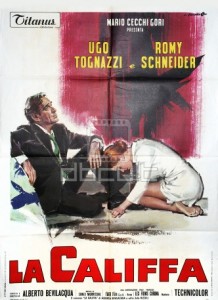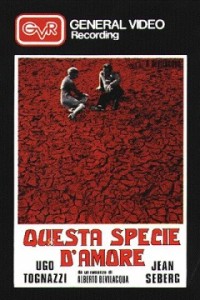Poetry in Translation (CCCXXIII): Alberto BEVILACQUA
(1934, Parma – 2013, Roma), EMILIA ROMAGNA / ITALY – “Anima amante”, “Suflet Îndrăgostit”, “Falling in Love”
Anima amante
Alberto BEVILACQUA
(1934, Parma – 2013, Roma)
Anima amante mia per sbaglio
segnata
come una data
in un estraneo anno domini
io ti ho forse
perché ho tutto quello
che non dovrei avere per averti
mio sapore d’altrove
cerchiamo di fare in fretta
la nostra eternità
sta godendo di poche ore.
* * * * * * *
Suflet Îndrăgostit
Alberto BEVILACQUA
(1934, Parma – 2013, Roma)
Sufletul meu îndrăgostit este marcat
din greşeală
pe o filă de calendar
din ţări străine
poate îmi vei aparţine
pentrucă pot avea ori şi ce
şi nu este absolut necesar să te am pe tine
gustul meu e altundeva
încercăm să strunim
eternitatea
ca să ne bucurăm de câteva clipe.
Rendered in Romanian from the original Italian verse:
by Constantin ROMAN, London
© 2015 Copyright Constantin ROMAN, London
* * * * * * *
Falling in Love
Alberto BEVILACQUA
(1934, Parma – 2013, Rome)
My soul had fallen in love
by mistake
on a diary page
from faraway lands
maybe you will belong to me
because I could have anybody
and it’s not absolutely necessary to have you
my taste is different
we shall try to speed up Eternity
to enjoy a few moments.
Rendered in English from the original Italian verse:
by Constantin ROMAN, London
© 2015 Copyright Constantin ROMAN, London
* * * * * *
SHORT BIO: Alberto Bevilacqua Italian novelist, poet and film-maker was one of the most respected new Italian writers of the 1960s. He is best remembered for two of his novels, which he adapted and directed successfully for the screen: La Califfa (The Lady Caliph), published in 1964 and filmed in 1970, and Questa Specie d’Amore (This Kind of Love), published in 1966 and filmed in 1972.
Born in Parma, in Emilia Romagna he wrote La Polvere sull’Erba (Dust in the Grass), a book of stories about local life in Parma, which drew the attention of Leonardo Sciascia. At secondary school one of his teachers was the poet Attilio Bertolucci, father of the film-maker Bernardo. and he was encouraged to go to Rome in 1960 to find work in the Italian film industry.
Bevilacqua found jobs writing screenplays, including two for the horror director Mario Bava; one of the resulting films, I Tre Volti Della Paura (Black Sabbath, 1963), gained cult status.
La Califfa was published by the media tycoon Angelo Rizzoli and became an immediate bestseller.
The author had to wait until 1970 to find a willing producer (Mario Cecchi Gori) and star (comic actor Ugo Tognazzi, who ensured success for the film.
That success enabled Bevilacqua to direct the film of another of his novels, Questa Specie d’Amore, the story of a marriage going awry (perhaps inspired by Bevilacqua’s own). The leading role was again played by Tognazzi, with Jean Seberg as the wife. It won the David di Donatello award for best film. Bevilacqua then directed Attenti al Buffone (Watch Out for the Clown, 1975), starring the popular Italian actors Nino Manfredi and Mariangela Melato, as well as the American Eli Wallach. It was most significant for its musical score, adapted by Ennio Morricone from the works of Clément Janequin.
Alberto Bevilacqua published more than 35 books and in 1968 won Italy’s major literary award for L’Occhio del Gatto (The Cat’s Eye), another story of a failing marriage. After separating from Bucchich, he met the actor Michela Miti while making the film Gialloparma in 1999 and they began a relationship. (Abridged from the Obituary published by London’s Guardian)






No Comments so far ↓
Like gas stations in rural Texas after 10 pm, comments are closed.